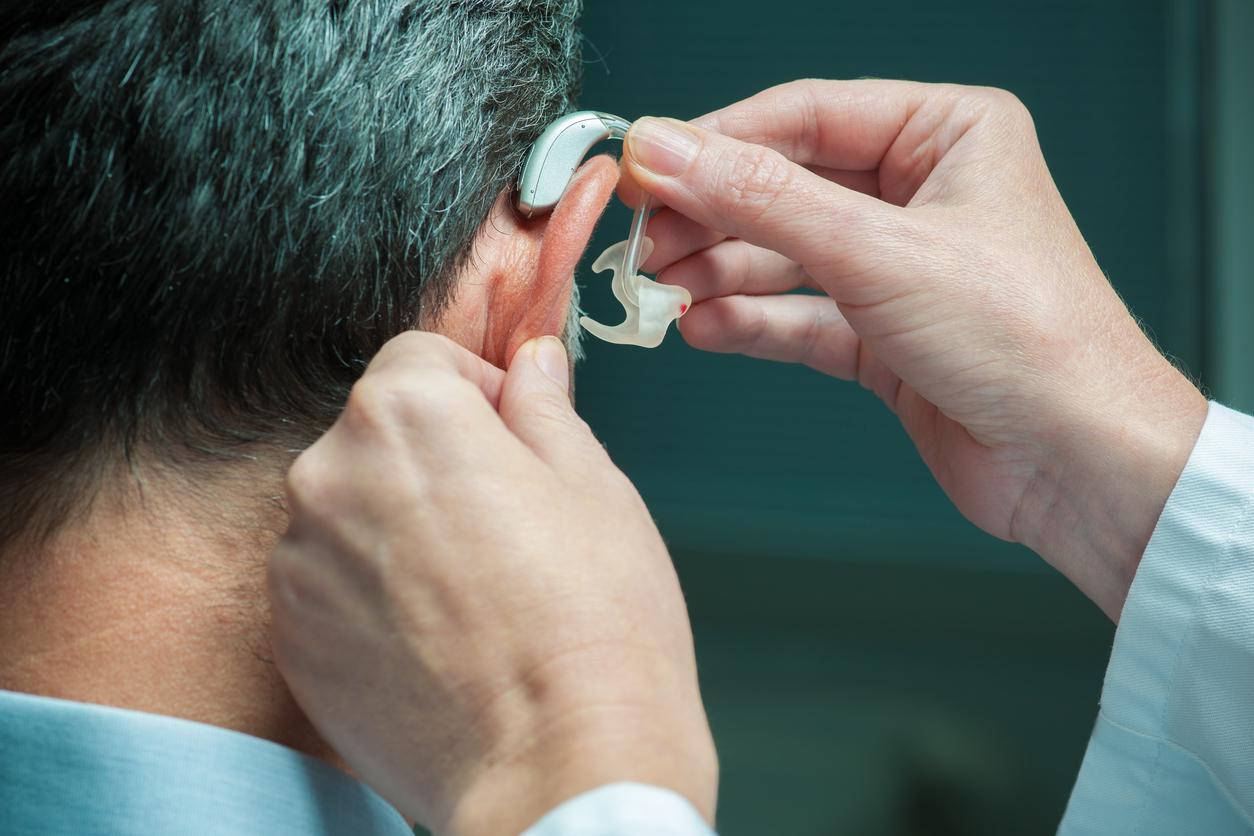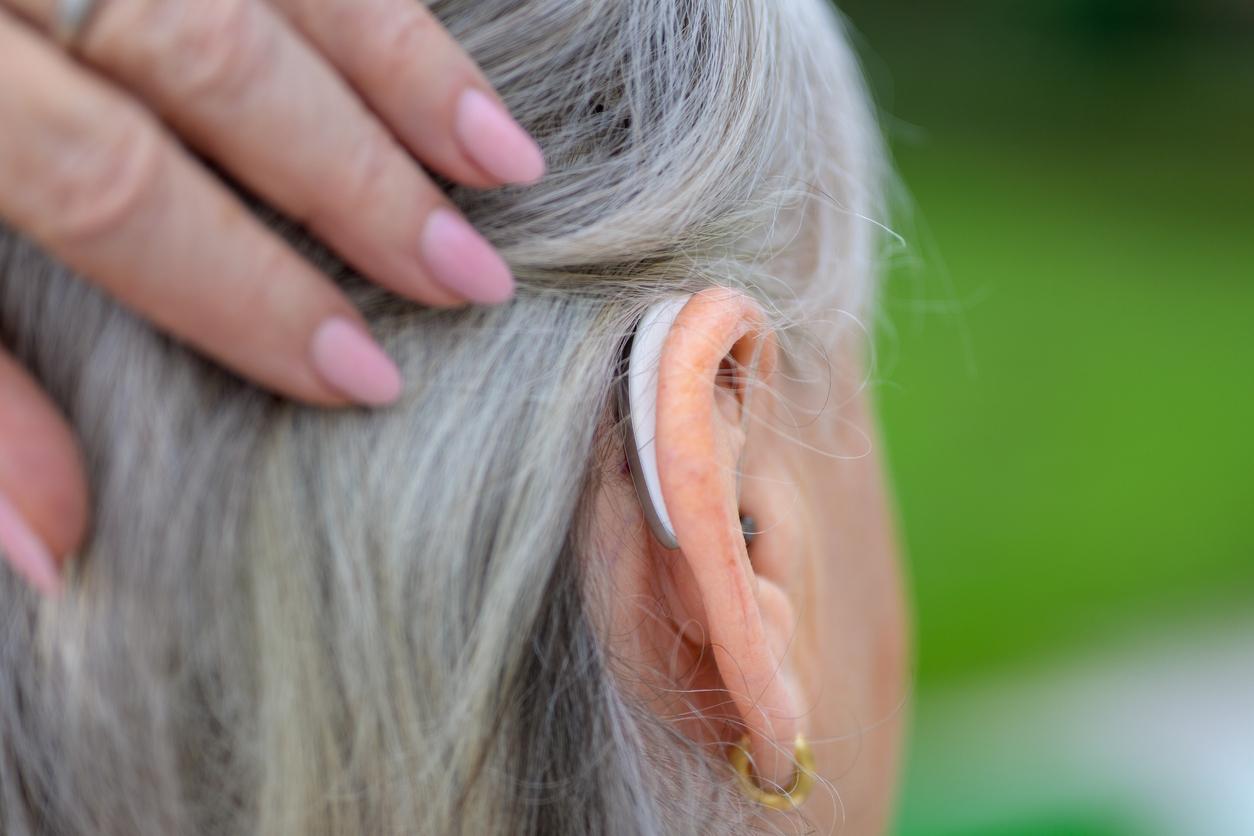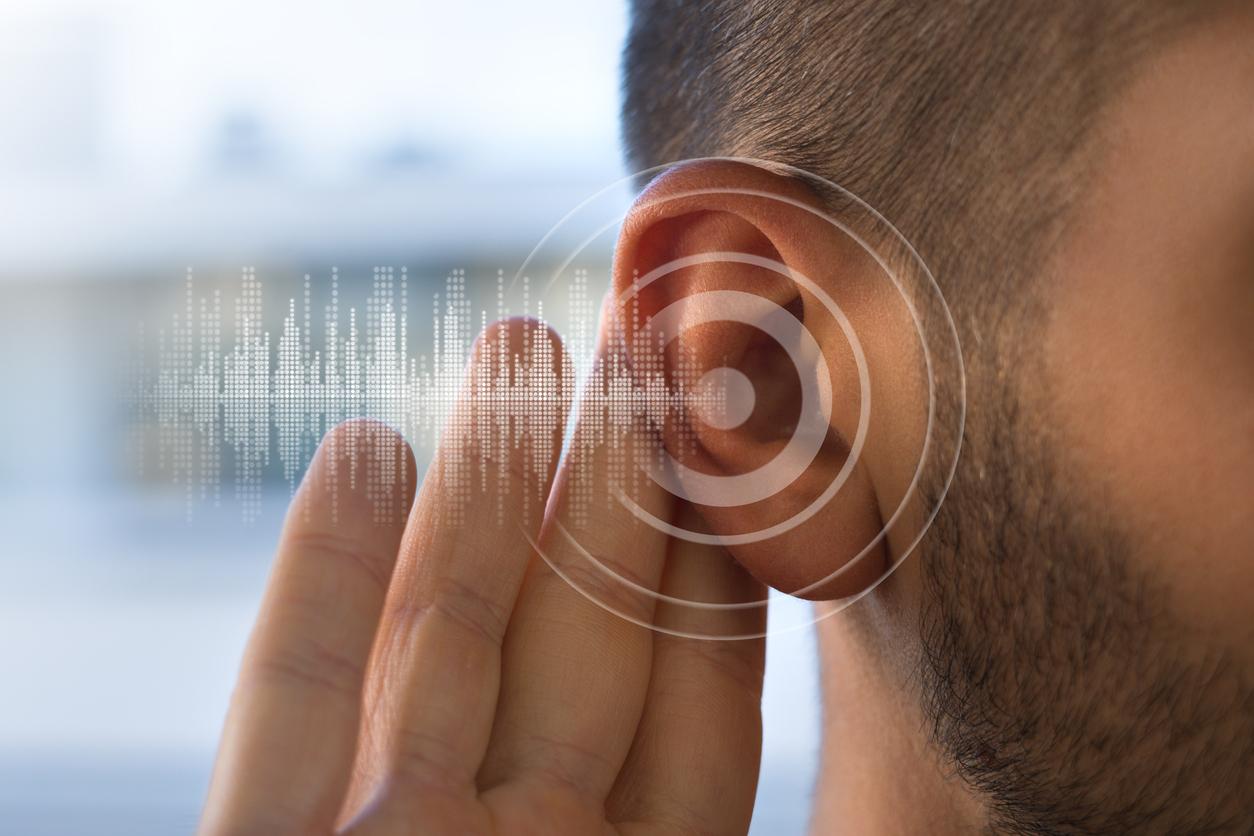
What do you say? Hearing loss often goes unrecognized
Hearing loss doesn’t happen overnight; very gradually the hearing diminishes. That is also the reason that many people do not even realize that they have hearing problems. So it can’t hurt to have it tested every now and then.
Childish, that’s what Anneke van Hooijdonk (61) thinks of herself. “When the batteries in my hearing aid are empty, they will beep. No one hears it, just me. To put an end to that nasty sound, I quickly put a hand behind my ear and slide the device into my pocket. But why now? Why don’t I just show it?”
Anneke has been wearing hearing aids for four years now. Little ones, not in but behind her ear. When she wears her hair for it, no one sees anything. Many friends and acquaintances have never seen her ‘hearing bells’, as she likes to call them. “At a table full of people I would like to suddenly shout ‘say, do you even know that I have a panther behind my ear?’ To then slide my hair back and show a cheerful hearing aid with a panther motif. I saw that in the store. That seems so funny to me – but I haven’t even bought it yet.”
Accepted
She is not alone in her restraint; about 20 percent of people with hearing aids do not yet find wearing them really socially acceptable. This is apparent from a study by TNS NIPO commissioned by the National Hearing Foundation.
There are also people who need a hearing aid but don’t wear one. On average, they have been hearing impaired for eleven years. The people who do wear hearing aids have also waited a long time: about seven years. A minority, 20 percent, is decisive and took the step within a year. Like Anne. When her daughter called out more and more often: ‘Maham, I didn’t say that!’ she went to the doctor.
“Smart”, says professor Wouter Dreschler, professor of audiology at the AMC in Amsterdam. “The sooner you start using a hearing aid, the better you can handle it when there is really no other option. It is important that the auditory nerve, which translates sound from the ear to the brain, remains stimulated. If that nerve does not receive impulses for too long, you can no longer get used to a hearing aid.”
Dreschler therefore advises people to have their hearing tested if they suspect that their hearing is impaired. “A small and light hearing aid can help at that stage. This is not to say that we can solve all hearing problems. As advanced as modern hearing aids are, in some situations, such as communicating in noise at work, there is still no good solution.”
Gradual decline
However, people don’t always realize that their hearing has deteriorated, Dreschler says. It is often the environment that points them out. But how can you not recognize a hearing problem? If you temporarily do not hear well because of a cold, do you notice that right away?
“Hearing loss usually occurs very gradually,” explains the professor. “From the age of thirty, hearing deteriorates due to a slow aging of the hearing sense, some faster than others. People get used to not hearing everything anymore, certainly because the brain fills in the gaps itself. If you only understand half of what is being said, you are constantly thinking about what the most logical content will be.” But that is not without consequences, Dreschler knows. “Filling holes takes a lot of energy. Especially if you don’t realize that you don’t hear so well anymore.”
Who knows that his ears are no longer tip-top, if he has to discuss something with a colleague, seeks a quiet room with little reverberation and meets with a friend in a quiet restaurant instead of a diner. But if you don’t know that, then you don’t come up with the idea to take measures. And then at the end of the day you are exhausted, you have a splitting headache or sleeping problems. “An unrecognized hearing problem can cause all kinds of complaints that you can also get from too much stress,” says Dreschler. People often attribute these complaints to their age or to modern life, which is becoming increasingly hectic, or to the deteriorating acoustics of buildings.
Confrontation
Even when people come to our department for an examination and are therefore prepared that their hearing may be impaired, they often continue to deny. Some are really stunned when I confront them with the results of their hearing test, the audiogram. But when they see the extent of the hearing damage, they can no longer ignore it. That can be very confronting, yes.”
It is not known exactly how many people have hearing loss without knowing it. Dreschler: “Research by TNS NIPO, commissioned by the National Association of the Hard of Hearing, shows that more than 1.6 million Dutch people have hearing loss. Only a third of them wear hearing aids. And I dare to say that there is a lot of hidden hearing loss behind the figures of people who stop working early because of a (threatened) burnout. Because they don’t
know that there is something wrong with their hearing and that the company doctor does not pay attention either.”
Overwhelming sound
Anneke was shocked when she actually got her hearing aid in the store. “The sound was so overwhelming that I suddenly realized what I’ve been missing all this time. I had to come to myself for a while. Now I’m happy with them, mainly because I can play with them a bit – I don’t always wear them. We do when we sit at the table with the whole family, especially in my daughter’s house. There it is quite empty, modern and therefore everything sounds rather hollow and loud.
And when I’m in De Nieuwe Veste in Breda, where I’ve been taking clay courses for years, I can’t live without it either. I am so focused on my work there that I don’t look up or down. But of course I don’t want to miss what is being said behind me… At home I don’t wear the devices very often. There are carpets and all kinds of pillows, I can really hear what my husband is saying. When we watch TV together, I definitely don’t have them in. My husband turns the sound so loud that I can understand it anyway. I’ve told him so many times to have his ears checked, but he doesn’t want to hear about it…”
Certified hearing care professionals
Many hearing care professionals offer free, no-obligation hearing tests. To be sure that the hearing care professional takes a high-quality test, interprets it correctly and refers it to an otolaryngologist or an audiology center if necessary, you can now rely on the StAr quality mark. Only hearing care professionals who adhere to the so-called Field standard are allowed to carry this quality mark.
These standards have recently been established by all stakeholders in hearing care – not just hearing care professionals, but also ENTs, audiologists, industry and patient organisations. You can find the quality mark at independent hearing care professionals and also at hearing specialists of the larger retail companies.
“Even if you went to your GP for a hearing test and had your ears tested by an otolaryngologist, it is advisable to buy the hearing aid from a hearing care professional with the StAr quality mark, says Wouter Dreschler, who was closely involved in the realization thereof. “There are still hearing aid professionals who view the sale of hearing aids too much as a mere trade, who do not use proper tests, do not employ well-qualified staff or do it ‘on the side’ in their optician’s shop.
But it’s not just about the equipment, as with TVs and vacuum cleaners, it’s about technically advanced devices that must be adjusted precisely to the user’s hearing and living situation. So that quality mark was sorely needed.”
Sources):
- Plus Magazine

















